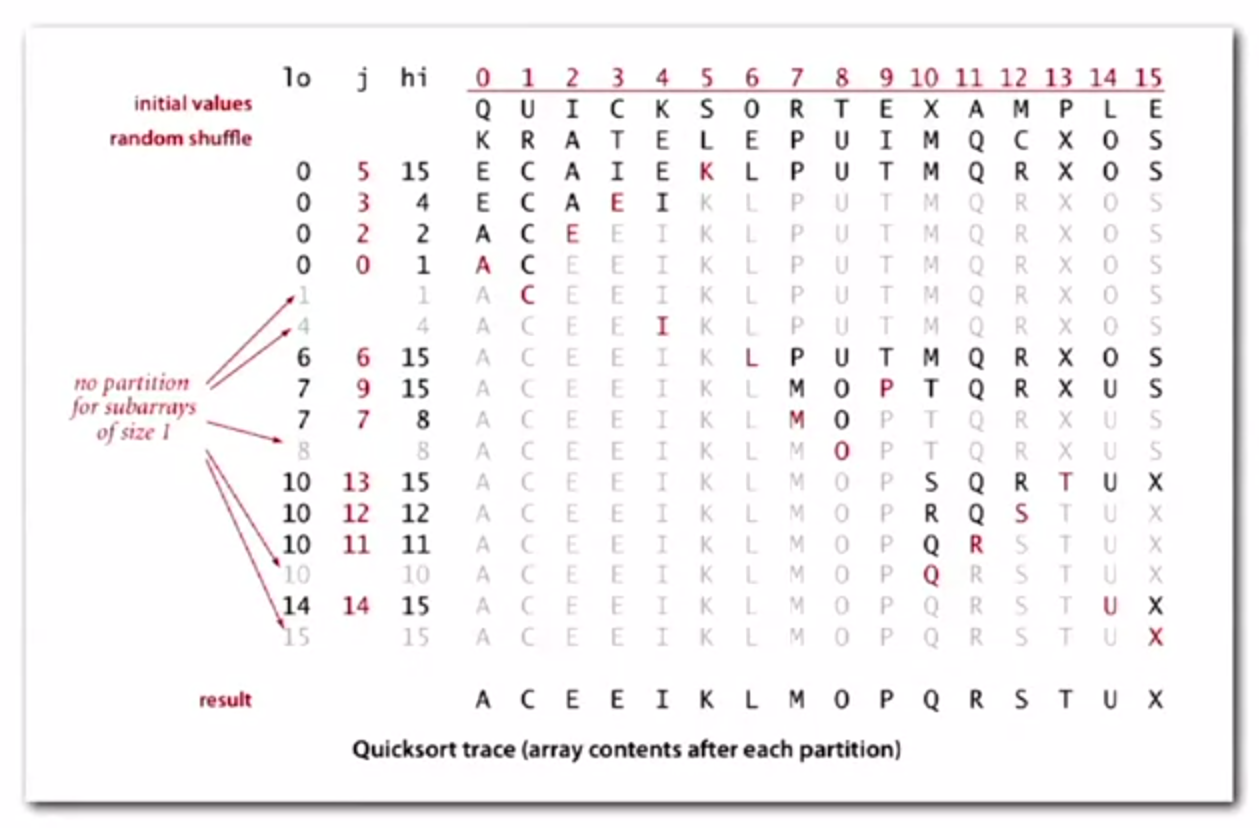Quick Sort
Quick sort is one of the two classic sorting algorithms that are
used widely in the world's computational infrastructure. The idea
of quick sort is to partition and sort an array so that for
some j, entry n[j] is in place -- no larger entry to the
left of j and no smaller entry to the right of j.
Repeat recursively for subarrays [0, j) and (j, n.length -
1].
The sorting of the array so that entry n[j] is in place and there are no larger entries to the left and no smaller entries to the rights is as follows:
- Arbitrarily choose the
firstelement as thepivot/partitioningelement - Maintain an
ipointer that movestlefttoright - Maintain a
jpointer that movesrighttoleft Movetheipointer to theleftas long asn[i] < n[start]Movethejpointer to theleftas long asn[i] > n[start]- if the pointers have
crossedswapn[j]withn[start]break, sortcomplete
- If the pointers have
not crossedswapn[i]withn[j] - Go to step 4
Time complexity
Worst case: If the pivot element is the max or the min element
the performance is O(N) = N2. To make that
unlikely to happen we first shuffle the array and the performance
becomes O(N) = N * log(N)
Example:

Sample typescript implementation for sorting numbers in
ascending order.
function quickSort(numbers: number[]): void {
debugger;
shuffle(numbers);
sort(numbers, 0, numbers.length - 1);
}
function shuffle(numbers: number[]): void {
for (let i = numbers.length - 1; i > 0; i--) {
const j = Math.floor(Math.random() * (i + 1));
const tmp = numbers[i];
numbers[i] = numbers[j];
numbers[j] = tmp;
}
}
function sort(
numbers: number[],
start: number,
end: number,
): void {
if (start >= end) return;
const j = partition(numbers, start, end);
sort(numbers, start, j - 1);
sort(numbers, j + 1, end);
}
function partition(
numbers: number[],
start: number,
end: number,
): number {
const lo = numbers[start];
let i = start + 1;
let j = end;
while (true) {
if (numbers[i] < lo && i < end) {
i++;
continue;
}
if (numbers[j] > lo && j > start) {
j--;
continue;
}
if (i >= j) {
break;
}
const tmp = numbers[i];
numbers[i] = numbers[j];
numbers[j] = tmp;
}
const tmp = numbers[j];
numbers[j] = lo;
numbers[start] = tmp;
return j;
}Image taken from: https://www.coursera.org/learn/algorithms-part1/


